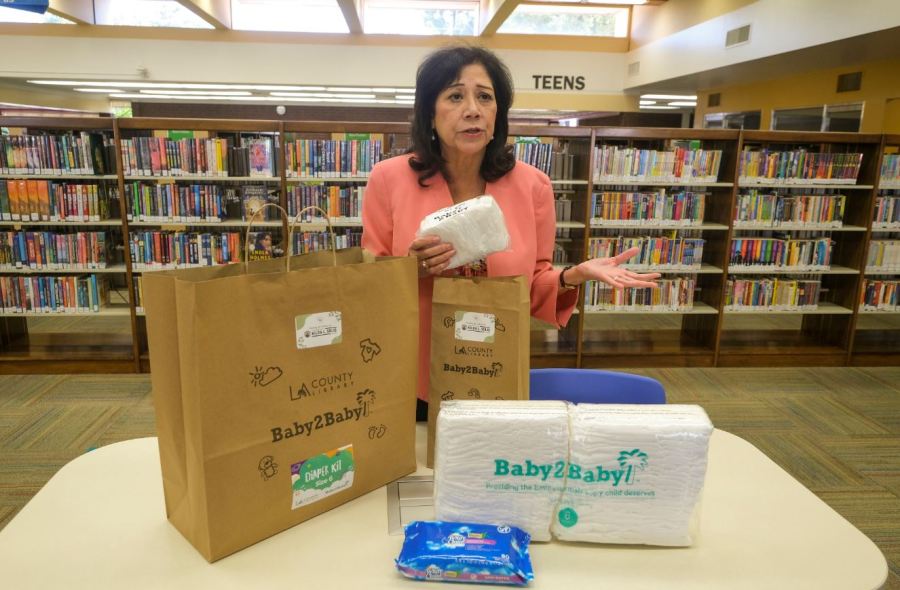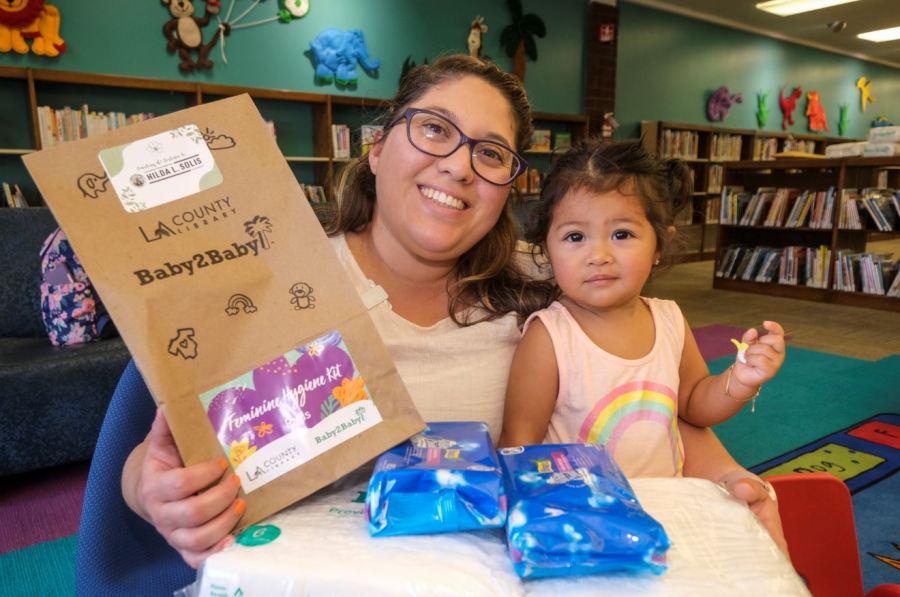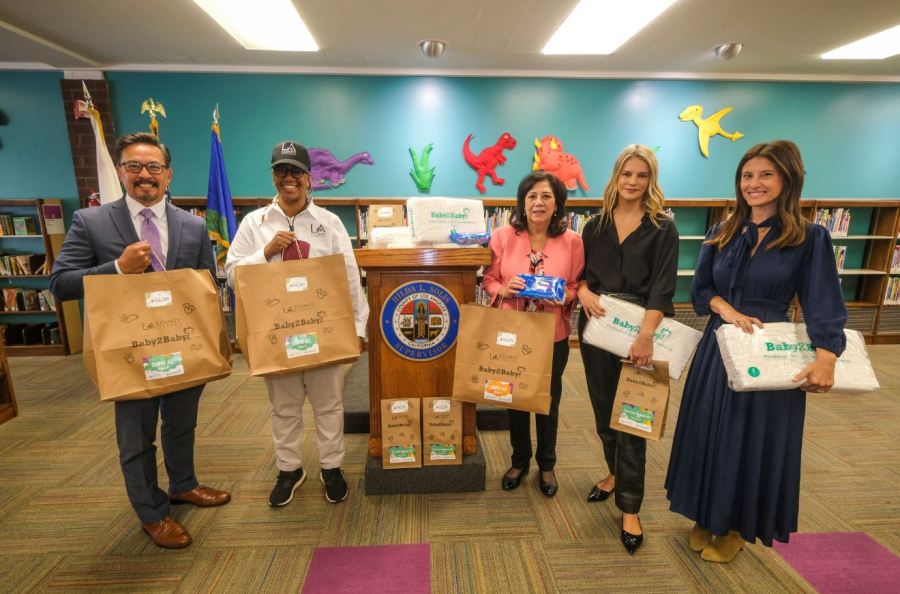Los Angeles County libraries are now giving away free diapers and menstrual products to those who need them.
The free items will be distributed at five libraries — Baldwin Park, Willowbrook, San Fernando, Pico Rivera and Lancaster — made possible by a pilot program approved back in April.
Available items include diapers, wipes and menstrual products all provided by the nonprofit organization Baby2Baby.
The program was authored by Los Angeles County Supervisors Hilda Solis and Sheila Kuehl.
“Inflation is impacting our residents in big ways and small ways,” said Solis. “These are supplies families cannot go without. We owe it to our residents to provide these items in accessible locations like our L.A. County libraries. My hope is that these free products, whether they be diapers for babies or menstrual products, offer families relief during these challenging times.”
“Just as we provide toilet paper and soap in public restrooms, we should also provide feminine hygiene products and diapers, so that women’s basic health needs, and the needs of their infants, can be met in our county restrooms,” said Kuehl.
According to the motion, a 2021 national survey of menstruating teens found that 1 in 4 reported struggling to afford period products. Around 4 out of 5 teens either missed class time or knew someone who missed class time because they did not have access to period products. The need for diapers can also create similar hardships for parents, officials said.
“In recent years, there has been an overdue recognition that hygiene products are costly and that cost is disproportionately felt by women,” according to the motion. “Period poverty, defined as inadequate access to menstrual hygiene tools and education, has a disparate impact and creates an additional financial burden for those who menstruate.”
The pilot program is scheduled to run for one year with a future expansion plan if deemed successful.















